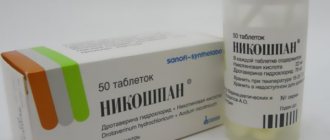B vitamins play a very important role in the functioning of the entire body. Vitamin B1 deficiency is a serious pathological condition that requires timely diagnosis and treatment. Vitamin B1 or thiamine takes part in metabolism, regulates the activity of the central and peripheral nervous system, so its deficiency leads to the development of such a serious disease as Beri-Beri. The initial stages of thiamine deficiency are also characterized by the occurrence of a number of unpleasant symptoms that significantly reduce a person’s quality of life.
Daily requirement of vitamin B1 for women, men and children
The daily requirement of vitamin B1 differs depending on the age and gender of a person. The condition of the body matters. For example, during pregnancy and lactation, the need for it increases. The normal indicators are presented in the table.
| Categories of people | Daily requirement, mg | IU/IU |
| 0-6 months | 0,2 | 67 |
| 7-12 months | 0,3 | 100 |
| 1-3 years | 0,5 | 167 |
| 4-8 years | 0,6 | 200 |
| 9-13 years | 0,9 | 300 |
| Men 14 years and older | 1,2-2,5 | 400-833 |
| Women 14-18 years old | 1,0 | 333 |
| Women 19 years and older | 1,1 | 367 |
| Pregnancy | 1,5 | 500 |
| Lactation | 1,7 | 567 |
| During heavy physical work | 2,5-3,0 | 833-1000 |
| Aged people | 1,2-1,4 | 400-467 |
When does the need for vitamin B1 increase?
There are conditions and lifestyle features in which the body’s need for vitamin B1 increases. These include:
- Smoking, alcohol abuse.
- The habit of drinking more than 2 cups of coffee per day. Caffeine leads to the destruction of vitamin B1 molecules.
- Abuse of carbohydrate foods: baked goods, pasta, sweets.
- Therapy with antibacterial drugs and medications aimed at reducing the acidity of gastric juice.
- Bearing the fetus. The need for thiamine is especially high in the last 2 months of gestation.
- Lactation. If a child does not receive enough vitamin B1 from milk, the risk of developing cardiac pathologies increases.
- Taking contraceptive medications.
- Lack of fresh, uncooked foods in the diet. Heat and salt destroy vitamin B found in vegetables, grains and meat.
- Conditions that reduce immunity: emotional stress, diseases of the digestive system, diabetes, disorders of the thyroid gland, infections, previous surgery, burns, injuries.
- Engaging in heavy physical labor.
- HIV. There is evidence that 25% of AIDS patients have a deficiency of vitamin B1, which leads to weight loss and neurological diseases.
- Chronic fatigue syndrome with its characteristic symptoms: sleep problems, loss of energy, increased fatigue, depression.
- Dieting.
- Growth and development of the body. Children who consume a lot of baked goods and sweets are in dire need of vitamin B1.
- Aged people. The older a person is, the worse his body absorbs any substances.
- Living in hot climates and cold regions. Such boundary conditions lead to the fact that the need for vitamin B1 increases by 50%.
- Study hard or actively build a career. According to statistics, a lack of vitamin B1 is observed in 40% of young people.
- Work in hazardous industries involving toxic substances (arsenic, mercury, etc.).
Nausea and vomiting
Although gastrointestinal symptoms are less common with thiamine deficiency, they can still occur.
It is not entirely clear why digestive tract-related symptoms may occur with thiamine deficiency, but documented cases of gastrointestinal symptoms have been resolved after taking thiamine supplements ().
Vomiting may be more common in children with deficiency, as it has been recognized as a common symptom in infants consuming soy-based infant formulas that contained extremely little of this vitamin ().
Summary:
In rare cases, gastrointestinal symptoms such as nausea, vomiting, or abdominal pain may be symptoms of thiamine deficiency.
Why does the body need vitamin B1?
Vitamin B1 performs many functions in the body. It is necessary for the proper functioning of the nervous and digestive systems. The brain, skin, blood cells, liver, gallbladder and more need it.
- Charges with energy. A coenzyme of vitamin B1, called cocarboxylase, performs important functions in the body. It is responsible for the breakdown of carbohydrates into glucose, without which normal functioning of the brain is impossible. Neurons cannot use any nutrients other than glucose as a source of nutrition. It is to maintain their normal functioning that up to half of the sugars involved in metabolism are spent. However, carbohydrates can become a source of energy for cells only if they have undergone the process of phosphorylation. Without thiamine, the attachment of phosphorus residues to glucose is impossible.
Vitamin B1 neutralizes metabolic products, namely lactic and pyruvic acid. Their excess leads to rapid fatigue, decreased energy, and loss of strength. Cocarboxylase converts acids into glucose, which acts as a “battery” for the body.
Vitamin B1 is a source of good mood, excellent appetite and energy boost.
- Good for the liver and gallbladder. The biological role of vitamin B1 is to maintain normal amino acid metabolism. It takes part in the formation of fatty acids that can protect the hepatobiliary system from stones.
- Necessary for the proper functioning of the nervous system. The main role in protecting the membrane of neurons from destruction belongs to choline. In addition, this substance is responsible for reducing LDL levels. Choline is present in the acetylcholine formula, which is responsible for transmitting signals from the brain to the muscles. Acetylcholine prevents the destruction of neurons and maintains human cognitive abilities at the proper level.
The mechanism of action of vitamin B1 is such that it prevents choline from being broken down. Moreover, without it, normal production of acetylcholine is impossible.
Thiamine takes part in controlling the action of serotonin (the hormone of joy) and gamma-aminobutyric acid (a substance responsible for brain function).
- Good for digestion. Thiamine is prescribed to patients with stomach ulcers and other diseases of the digestive system. It helps control the acidity of gastric juice and normalizes the contractility of the gastrointestinal tract.
- Against skin diseases. Vitamin B1 has the ability to relieve inflammation in various layers of the dermis, so it is used in the treatment of burns, wounds, psoriasis, eczema, lichen and neurodermatitis. Vitamin B1 is no less useful for mucous membranes. It is necessary for the skin, as it promotes the production of substances that help fight infection, bacteria, as well as substances that enter the bloodstream from insect bites.
- Essential for DNA. It is directly involved in the transfer of genetic material during cell division.
- Essential for pregnant and lactating women. Vitamin B1 is needed for the proper development of the fetus and newborn child, as well as for the normal functioning of the female body.
- Relieves pain. Thiamine helps reduce the intensity of toothache. It is used as a remedy for motion sickness in land, air and water transport.
- Participates in hematopoiesis. Without this vitamin, normal production of blood cells is impossible. Its lack in the body can cause the development of anemia.
- Antioxidant. Vitamin B1 acts as an antioxidant, preventing cells from aging and dying.
High blood pressure
Although there are many reasons for high blood pressure, one of them is considered to be a deficiency of vitamin D. Although it is a fat-soluble substance that can accumulate in the body, if you do not get the required amount daily, its reserves are gradually depleted.
Recent studies have linked high blood pressure to a lack of vitamin D, since this substance regulates fat metabolism and helps in the absorption of calcium, which is responsible, among other things, for vascular tone. On average, adults need about 600IU of the vitamin per day. But in modern conditions, vitamin D is one of the nutrients that is difficult to get from food every day, since not all foods contain it in sufficient quantities. When it comes to foods, fatty fish, especially salmon, whole milk and orange juice, as well as mushrooms grown in the sun or under ultraviolet light, are rich in vitamin D. The richest source of vitamin D is fish oil, but its taste and smell are not the most pleasant. Sometimes supplements—fish oil capsules, medicinal drops, or multivitamins—can help replenish vitamin D losses.
Physicochemical characteristics
Vitamin B1 is a substance with high biological activity. It is presented as a water-soluble crystalline powder with the odor of yeast. When heated, some of the beneficial properties of vitamin B1 disappear.
Chemical properties of vitamin B1:
- It will dissolve in water, but is insoluble in fats and alcohol. A synthetic analogue of thiamine, binfotiamine, dissolves in fats.
- Vitamin B1 cannot be produced in sufficient quantities in the human body, so it must come from outside.
- Thiamine is absorbed in the intestines. The body absorbs 2-5 mg of vitamin B1 per knock (no more than 15 mg). With gastrointestinal diseases, this figure decreases.
- The coenzyme of vitamin B1 is cocarboxylase. From the intestine, the thiamine molecule enters the liver, where it combines with phosphoric acid molecules and, thanks to the influence of magnesium, is transformed into the coenzyme thiamine diphosphate. In this form, it is sent to organs and tissues. Due to its high activity, the coenzyme is absorbed better than thiamine.
- Muscles contain 50-60% vitamin B1. The rest of it is distributed among the internal organs. It is present in the brain, liver, heart, kidneys, and adrenal glands.
It occurs in the body in 4 forms:
- Thiamine is unphosphorylated.
- Thiamine monophosphate.
- Thiamine diphosphate (thiamine pyrophosphate - cocarboxylase, TPP, TDP). This form is more active than the others.
- TTP thiamine triphosphate.
The chemical formula of vitamin B1 is C12H17N4OS .
Lack of vitamin B1 in food leads to diseases
Vitamin B1 deficiency in food leads to the following health problems:
- Decreased appetite, anorexia. Vitamin B1 is necessary for the brain, in particular, the hypothalamus, where the center responsible for saturation is located. In studies with rodents, it was found that the lack of food sources of vitamin B1 in their diet leads to a decrease in the amount of food they consume by 69-74%. However, after bringing the level of thiamine in the rats' body to the initial level, the appetite returned to normal. [12]
- Increased fatigue.
- Irritability.
- Decreased knee reflex, deterioration of innervation of the triceps and ankles. As vitamin B1 deficiency progresses, a person may lose the ability to move normally.
- Paresthesia, manifested in the form of a burning sensation, tingling and crawling. In studies with rodents, it was found that a lack of vitamin B1 leads to damage to peripheral nerves. [3, 4]
- Chronic muscle weakness.
- Deterioration of vision up to the development of papilledema, neuropathy and even blindness.
- Nausea and vomiting.
- Slowing heart rate. This has been proven in a number of animal studies. [5, 6]
- Shortness of breath caused by heart problems.
- Impaired consciousness, memory loss, confusion, hallucinations. These symptoms are characteristic of Wernicke-Korsakoff syndrome, which develops against the background of alcoholism and vitamin B1 deficiency.
[Video] Dr. Berg - Vitamin B1 deficiency: what is it for?
Muscle weakness
Muscle weakness is not uncommon and can often be difficult to identify.
Short-term, temporary muscle weakness affects almost everyone at some point. However, persistent, long-term muscle weakness without an obvious cause may be a sign of thiamine deficiency.
In several cases, muscle weakness has been observed in patients with thiamine deficiency (, ,).
Additionally, in these cases, muscle weakness was significantly reduced after taking thiamine supplements.
Summary:
Muscle weakness, especially in the arms and legs, can occur with thiamine deficiency.
Vitamin B1 hypervitaminosis
Vitamin B1 has no toxic effect on the body. Its overdose when eating regular foods or synthetic additives is impossible. This risk exists only with injections of vitamin B1, provided that the dose exceeds 100 mg.
Symptoms of vitamin B1 hypervitaminosis:
- Tremor of the limbs, head and body.
- Dyspnea.
- Hot flashes.
- Increased anxiety.
- Increased sweating.
- Reduced blood pressure.
- Spasm of the muscles of the pharynx.
- An allergy that develops due to a blockage of the enzymes needed to break down histamine.
In case of an overdose of vitamin B1, a person needs emergency medical care.
Dyspnea
Given that thiamine deficiency can affect heart function, shortness of breath may occur, especially during physical exertion.
This is because a lack of thiamine can sometimes lead to heart failure, which occurs when the heart becomes less efficient at pumping blood. This can eventually cause fluid to accumulate in the lungs, making breathing difficult ().
It is important to note that shortness of breath can have many causes, so this symptom alone is not usually a symptom of thiamine deficiency.
Summary:
Heart failure caused by thiamine deficiency can lead to shortness of breath. This can happen when fluid accumulates in the lungs.
Instructions for use of vitamin B1
Vitamin B1 is not compatible with substances such as:
- Pyridoxine (B6). This vitamin prevents the formation of coenzymes.
- Cyanocobalamin (B12). When taken together, the risk of allergies increases.
- Antibiotics (Levorin, Methicillin, Oxacillin, Nystatin). The effectiveness of antibacterial therapy deteriorates.
- Diuretics. Vitamin B1 will be heavily excreted in the urine, which will neutralize its beneficial effect.
- Some foods: tea and raw fish (they destroy the vitamin).
- Alcohol. Alcoholic drinks interfere with its absorption.
When administered by injection, vitamin B1 is not mixed with other drugs; it is administered separately, as it can neutralize the effectiveness of drugs.
Indications for use
Vitamin B1 is indicated in the following cases:
- Diagnosed thiamine hypovitaminosis.
- Chronic diseases of the digestive system: gastritis, pancreatitis, enteritis, Crohn's disease, celiac enteropathy.
- Cirrhosis.
- Diseases of the operated stomach.
- Polyneuritis.
- Paralysis.
- Metabolic disorders.
- Early hypogalactia.
- Dermatoses caused by disruption of the nervous system.
- Treatment of toothache, herpes zoster, intoxication with heavy metals, methyl alcohol. The drug is taken as part of complex therapy.
Vitamin B1 is prescribed to children who consume excess amounts of flour products.
Drug interactions
When combined with other drugs, vitamin B1 exhibits the following effects:
- Its activity is enhanced by co-administration of magnesium.
- Taking vitamin B1 can reduce the intensity of symptoms caused by a lack of pantothenic acid.
- To achieve optimal effects in the treatment of various diseases associated with vitamin deficiency, vitamin B1 is prescribed in combination with vitamins B6, PP, and ascorbic acid.
- Thiamine reduces the toxicity of Cyclophosphamide and Vinblastine.
- Vitamin B1 concentrations increase when taking Levodopa, used to treat Parkinson's disease.
How to properly inject vitamin B1?
Daily requirement for vitamin B1:
- Adult men - from 1.2 to 2.1 mg.
- Adult women 1.1 – 1.5 mg. For pregnant women, the dose is increased by 0.4 mg, and for lactating women by 0.6 mg.
- Children from 0.3 to 1.5 mg (depending on age).
- Elderly people - from 1.2 to 1.4 mg.
Parenteral administration begins with small doses (up to 0.5 ml of a solution with a concentration of 5-6%). It is increased if the patient tolerates the drug well.
The intramuscular injection is placed deeply, and it is administered intravenously slowly. Adult dose:
- 1 ml of a solution of 2.5-5% in the form of thiamine chloride.
- 1 ml of 3-6% solution in the form of thiamine bromide.
Injections are given once a day, after which the patient is transferred to taking the drug orally.
Oral dosage for adults:
- Prevention 5-10 mg per day.
- Treatment: 10 mg once, 1 to 5 times a day.
The course of treatment lasts from 1 month to 40 days.
Intramuscular administration to children:
- 12.5 mg of thiamine chloride, which is 0.5 ml of a 2.5% solution.
- 15 mg of thiamine bromide, which is 0.5 ml of a 3% solution.
The course consists of 10-30 injections.
Oral dosage for children:
- 5 mg at 1-day intervals up to 3 years of age.
- 5 mg 3 times a day from 3 to 8 years of age with a break of 1 day.
The course lasts from 3 to 4 weeks.
Side effects include pain during drug administration, allergic reactions, increased sweating, and increased heart rate.
Summarize
- Although thiamine deficiency is rare in developed countries, various factors or conditions, such as alcoholism or advanced age, may increase your risk.
- Thiamine deficiency can manifest itself in a variety of ways, and symptoms are often nonspecific, making identification difficult.
- Fortunately, thiamine deficiency can usually be easily corrected with dietary adjustments or supplementation.
Tags: B vitamins, Thiamine
- Related Posts
- Coral calcium: benefits and harms, application, safety
- Are potassium and vitamin K the same thing or not?
- Omega-6 fatty acids: benefits and harm, where they are found
« Previous entry
Names of B1 drugs in tablets
Vitamin B1 can be found in the form of medications and dietary supplements. They have different names. You should ask your doctor about which remedy is best to choose. Popular names:
- Benfogamma 150 mg. The daily dose is 1 tablet, taken after meals. This drug is often prescribed for neurological diseases.
- Thiamine chloride and thiamine bromide . The dose of the active substance can range from 2 to 100 mg. Take the drug 30 minutes before meals. The dose depends on the patient's age.
- Phosphotiamine . The active component is thiamine phosphorus ester. The dose is 10 mg. Take the drug after meals.
Only a doctor can prescribe drugs for injection. One of the most effective solutions is cocarboxylase.
Combilipen is a complex drug that, in addition to vitamin B1, contains pyridoxine and cyanocobalamin. Available in the form of a solution for injection. Treatment is carried out only under the supervision of a doctor. The course lasts from 5 to 10 days.
Irritability
Irritability is a feeling of agitation and frustration. When you're irritable, you often get frustrated quickly.
Irritability can be caused by a variety of physical, psychological and medical conditions.
One of the first symptoms of thiamine deficiency is irritable mood. It may occur within days or weeks after the deficiency occurs ().
Irritability has been particularly documented in cases involving infants with beriberi (vitaminosis B1), a disease caused by thiamine deficiency (, , ).
Summary:
Frequent irritability may be an early sign of thiamine deficiency, especially in infants.
Vitamin B1 in cosmetology
Vitamin B1 is good for facial skin and hair. It allows you to preserve their beauty and youth, so it is often used as part of various masks.
For hair
Vitamin B1 allows you to accelerate hair growth and restore its damaged structure. Regular use of masks makes them elastic, shiny and thick.
Vitamin B1 in solution can be added to shampoos and conditioners. Use 1 ampoule per hair wash.
Hair strengthening mask with vitamin B1:
- 2 tbsp. l. linseed oil.
- 1 yolk.
- 1 tsp. tinctures of Eleutherococcus.
- 1 ampoule of vitamin B1.
All components are mixed and applied to clean hair roots. After an hour, the composition is washed off.
For face
Vitamin B1 helps smooth out wrinkles, restore skin turgor, improve its color, and reduce the intensity of age spots. Thanks to its anti-inflammatory properties, it is possible to get rid of acne and blackheads. Masks with thiamine are useful for aging aging skin.
Recipe:
- 1 ampoule of thiamine.
- 20 g each of honey, cottage cheese and sour cream.
All components are mixed, applied to the face for 20 minutes, and washed off. The mask can be used 1-2 times a week.










